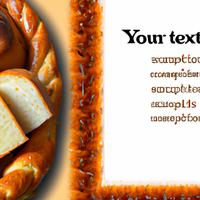
1 serving (57 grams) contains 190 calories, 3.0 grams of protein, 9.0 grams of fat, and 23.0 grams of carbohydrates.

Log this food in SnapCalorie

Nutrition Information
Calories |
791.7 | ||
|---|---|---|---|
% Daily Value* |
|||
| Total Fat | 37.5 g | 48% | |
| Saturated Fat | 10.4 g | 52% | |
| Polyunsaturated Fat | 0 g | ||
| Cholesterol | 0 mg | 0% | |
| Sodium | 1666.7 mg | 72% | |
| Total Carbohydrates | 95.8 g | 34% | |
| Dietary Fiber | 4.2 g | 15% | |
| Sugars | 8.3 g | ||
| protein | 12.5 g | 25% | |
| Vitamin D | 0 mcg | 0% | |
| Calcium | 83.3 mg | 6% | |
| Iron | 5.0 mg | 27% | |
| Potassium | 208.3 mg | 4% | |
* Percent Daily Values are based on a 2,000 calorie diet. Your daily values may be higher or lower depending on your calorie needs.
Food Attributes
Source of Calories
About Biscuit bread
Biscuit bread is a soft, fluffy bread typically crafted from a mix of flour, baking powder, salt, butter, and milk or buttermilk. Originating from Southern U.S. cuisine, it’s a staple comfort food often served alongside hearty meals or enjoyed with spreads like jam or honey. Its tender texture comes from the incorporation of cold butter, creating light, flaky layers through the baking process. While biscuit bread provides carbohydrates for energy, it is often calorie-dense due to its butter content and may be high in saturated fat depending on the recipe. Whole-grain or reduced-fat variations can enhance its nutritional profile by adding fiber and lowering fat content. Overall, biscuit bread offers a satisfying addition to meals but is best enjoyed in moderation as part of a balanced diet.



